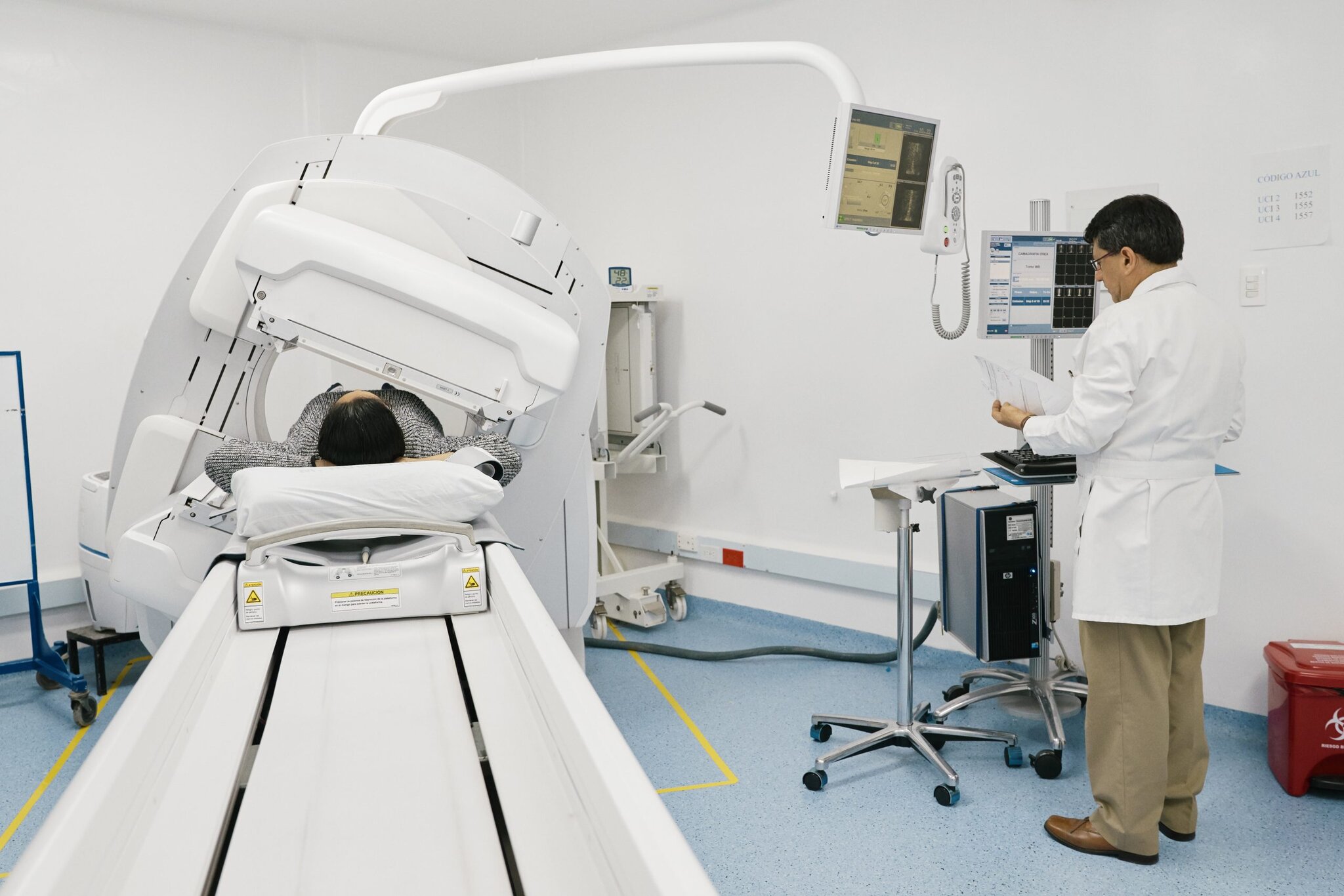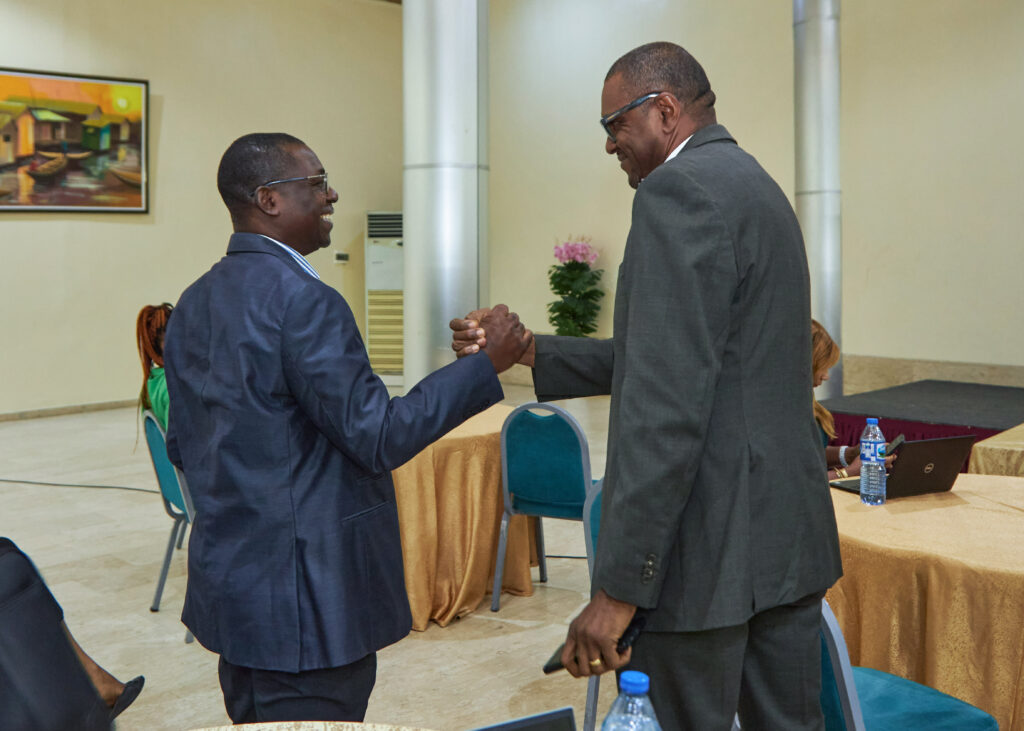
- Agreement covers provision of medical imaging and radiology services in C/Can cities for cancer diagnosis, treatment, and care
- Teams in C/Can cities will receive training and take part in scientific visits
RAD-AID International to provide C/Can cities with radiology support
C/Can today announced a new partnership with the radiology non-profit organisation RAD-AID International to bring diagnostic radiology and nuclear medicine support to C/Can’s network of cities in low- and middle-income countries (LMICs).
The agreement aims to increase the quality of and access to medical imaging and radiology services, as well as the capacity of health professionals through radiology equipment, IT, PACS (picture archiving and communication systems) implementation, digital health strategies, and capacity building.
“Our mission is to transform cancer care in LMICs, and one of our principles in carrying it out is through the power of partnerships”, said Isabel Mestres, C/Can’s Director of Global Public Affairs. “This agreement with RAD-AID strengthens the ability of our cities to provide better and faster diagnoses and directly impact cancer patients’ outcomes. We look forward to working with RAD-AID to further improve the lives of people in LMICs.”
“We are excited to launch this partnership with C/Can for expanding access to medical imaging and radiology in LMICs,” said Dr Dan Mollura, RAD-AID’s Founder and President/CEO. “Combining RAD-AID’s fourteen years of experience helping radiology facilities in LMICS with C/Can’s expertise and leadership in empowering cities in low-resource settings will drive change and improve cancer care by providing access to high-quality and impactful radiology resources.”
The two organisations will work together to provide medical imaging and radiology services in C/Can cities for cancer diagnosis, treatment and care. This will include organising, managing, and deploying radiology teams to support radiology and medical imaging at hospitals and medical facilities via on-site and/or remote virtual training of local healthcare professionals. The collaboration will also include strengthening digital transformation projects in cities, providing technical expertise to local institutions that are leapfrogging their radiology capabilities via the development and adoption of digital tools. A first collaboration in Rwanda will aim at supporting the Ministry of Health with its central software infrastructure planning.
The agreement also provides for scientific visits by project teams in C/Can cities, as well as RAD-AID team members (experts in the area of medical imaging, radiology and nuclear medicine) providing support for C/Can projects. Given the vital roles that x-ray (radiography), ultrasound, CT, MRI, angiography/fluoroscopy, and nuclear medicine play in the diagnosis, staging, and treatment of cancer, this partnership between C/Can and RAD-AID heightens both organizations’ impact on global health.
Moreover, RAD-AID is at the forefront of health information technology in global health outreach, such as picture archiving and communication systems (PACS), artificial intelligence (AI), electronic medical records (EMRs), and radiology information systems (RIS). As a data-driven medical discipline, radiology requires advanced computer-based imaging and archiving, which is why RAD-AID has developed IT infrastructure alongside radiology solutions for its partner hospitals that will bring new capabilities and make a positive impact through the collaboration with C/Can.
C/Can is a city-based partnership initiative that supports cities around the world as they work to improve access to equitable, quality cancer care. Since its launch in 2017 by the Union for International Cancer Control (UICC), C/Can has developed a new model of addressing access to cancer care that, for the first time, leverages the city as a key enabler in a health system’s response to cancer.
About RAD-AID International
RAD-AID International is a nonprofit (501c3) charitable organization with the mission of increasing and improving radiology and medical imaging for medically underserved regions. RAD-AID delivers radiology education and training through on-site and hands-on teaching of healthcare workers in low and middle-income countries (LMICs), as well as low-resource facilities in medically underserved communities of high-income countries. RAD-AID designs, builds, and implements healthcare infrastructure, imaging equipment, and radiology technology, integrated with clinical training, to accomplish vital radiology capacity-building. The organization consists of over 15,000 volunteers with +85 university-based medical center chapters, and operates global health outreach programs in over 40 countries. As radiology is vital to most health services, such as cancer treatment, maternal-fetal monitoring, heart disease care, and trauma response, RAD-AID improves the accessibility, safety, and quality of radiology worldwide as an anchor for improving global health. Learn more at www.rad-aid.org





